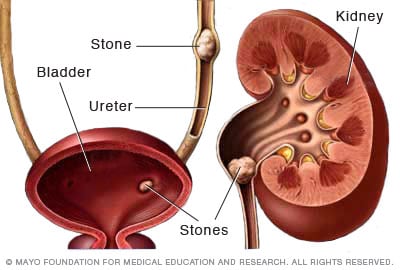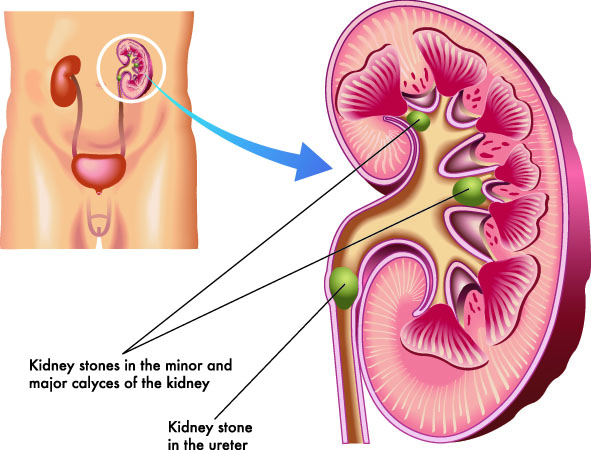Comprehensive Overview to Kidney Stones vs UTI: Diagnosis, Causes, and Relief
Comprehensive Overview to Kidney Stones vs UTI: Diagnosis, Causes, and Relief
Blog Article
Checking Out the Effects and Causes of Kidney Stones in Contrast to Urinary System System Infections: A Thorough Guide
The exploration of kidney rocks and urinary system system infections (UTIs) reveals a complicated interplay of signs and symptoms and underlying causes that warrant cautious evaluation. While both conditions can cause hematuria, they present distinctive clinical features and emerge from various etiological elements. Understanding the nuances of each problem is essential for efficient diagnosis and administration. What are the vital distinctions in their signs, and exactly how might these notify therapy strategies? The solution to these questions may provide vital insights right into the avoidance and care of these usual urological issues.
Review of Kidney Stones
Kidney stones, also referred to as kidney calculi, form when specific compounds in the urine crystallize and accumulation, leading to the advancement of tough deposits within the kidneys. These stones can vary in size, varying from a grain of sand to a golf sphere, and can be composed of numerous products, one of the most usual being calcium oxalate, uric acid, struvite, and cystine. The formation of kidney rocks is influenced by a number of elements, consisting of nutritional practices, fluid intake, and hereditary tendency.
Signs and symptoms of kidney rocks may consist of severe discomfort in the back or side, blood in the urine, nausea, and frequent urination, specifically as the stone relocates via the urinary tract. Medical diagnosis normally involves imaging research studies such as ultrasound or CT scans, along with urinalysis to recognize the stone's structure.
Therapy alternatives differ based upon the size and kind of stone, along with the severity of signs and symptoms (Kidney Stones vs UTI). Little stones may pass normally with increased liquid consumption, while bigger rocks might need clinical treatments such as lithotripsy or medical elimination. Recognizing the pathophysiology and risk variables connected with kidney rocks is essential for efficient avoidance and management
Summary of Urinary System System Infections
Urinary system infections (UTIs) prevail bacterial infections that influence any part of the urinary system, including the kidneys, ureters, bladder, and urethra. They mostly happen when germs, usually from the intestinal tract, get in the urinary system, leading to swelling and infection. UTIs are categorized into two primary types: challenging and uncomplicated. Straightforward UTIs typically take place in healthy and balanced people with typical urinary system systems, while complicated UTIs might arise in people with underlying problems, such as structural problems or endangered immune systems.
The frequency of UTIs is especially higher in women than men, mainly because of physiological distinctions, such as a much shorter urethra. Threat variables consist of sex-related task, particular contraceptive methods, urinary retention, and dehydration. The diagnosis of UTIs is typically confirmed with urine tests, which may reveal the presence of bacteria, white blood cells, or red cell.

Symptoms of Kidney Stones
The pain connected with kidney stones can manifest in various means, usually leading people to seek medical focus. Among the most common signs and symptoms is severe pain, generally localized in the reduced back or side, which may radiate to the important site abdominal area or groin. This pain, often defined as sharp or cramping, can take place unexpectedly and may rise and fall in strength.
Additionally, people might experience hematuria, or blood in the urine, which can vary from microscopic total up to visible discoloration. This signs and symptom may be come with by modifications in urinary system routines, such as enhanced regularity or seriousness, as well as pain during peeing. Nausea and throwing up are also common, frequently arising from the body's reaction to extreme pain.
In many cases, people may experience fever and cools, particularly if an additional infection creates due to the obstruction caused by the stones. On the whole, the combination of severe pain, hematuria, transformed urinary system patterns, and gastrointestinal signs can give significant insight right into the visibility of kidney rocks, warranting timely clinical analysis and intervention. Understanding these signs is vital for prompt medical diagnosis and effective management of the condition.
Signs of Urinary System Infections
Infections within the urinary system tract usually offer a variety of distinctive symptoms that can considerably affect everyday life. One of the most typical signs consist of a consistent desire to urinate, typically gone along with by a burning feeling throughout urination, understood as dysuria. Individuals may also experience increased frequency of peeing, generating percentages of pee each time.
Other noteworthy signs and symptoms consist of over cast or fetid urine, which may show the visibility of microorganisms or pus. In many cases, urine may show up pink or red because of the presence of blood, a condition recognized as hematuria. In addition, individuals may experience pelvic pain or stress, which view can even more exacerbate the sensation of necessity.
Systemic signs may additionally materialize, such as fever, cools, and tiredness, especially if the infection has actually risen to the kidneys. It is vital to recognize these signs and symptoms early, as without treatment urinary system infections can cause much more extreme issues. Kidney Stones vs UTI. Prompt clinical interest is advised when these signs and symptoms are observed, enabling ideal diagnostic evaluation and therapy to reduce pain and avoid more health and wellness issues
Causes of Each Problem
Frequently, kidney stones and urinary system system infections arise from unique yet occasionally overlapping reasons that can affect individuals in different ways. Dehydration, insufficient fluid intake, and high-sodium diet regimens can aggravate these conditions, promoting condensation within the urinary system system.

Comprehending these unique causes is essential for prevention and therapy. Kidney Stones vs UTI. While way of living modifications may mitigate the threat of kidney rocks, proper hygiene and prompt therapy of urinary system tract infections are essential for reducing their reappearance and connected problems
Conclusion
In recap, kidney rocks and urinary system tract infections present distinctive signs and underlying causes. Kidney rocks are defined by severe discomfort and metabolic elements, while urinary tract infections largely include bacterial infections bring about urinary urgency and discomfort. Both conditions can result in hematuria, their development mechanisms vary considerably. Recognizing these differences is crucial for reliable diagnosis and treatment, eventually enhancing person results for those influenced by either condition.
The exploration of kidney rocks and urinary tract infections (UTIs) exposes a complex interplay of signs and underlying reasons that warrant mindful evaluation.Urinary system system infections (UTIs) are common bacterial infections that impact any kind of part of the urinary system, including the kidneys, ureters, bladder, and urethra.Often, kidney rocks and click here to find out more urinary system tract infections occur from unique yet occasionally overlapping causes that can affect people differently.In summary, kidney stones and urinary tract infections existing distinctive signs and symptoms and underlying causes. Kidney stones are characterized by serious pain and metabolic aspects, while urinary system system infections largely involve bacterial infections leading to urinary seriousness and pain.
Report this page